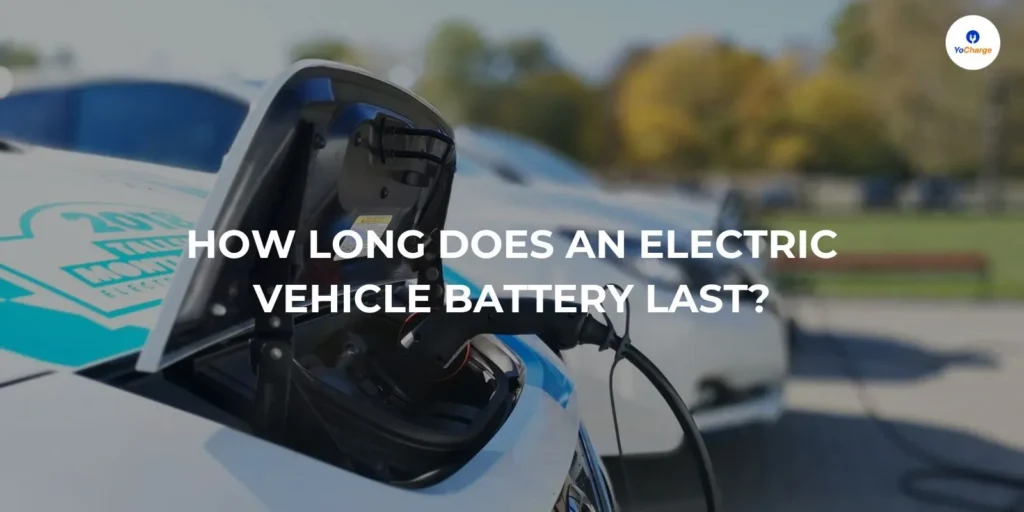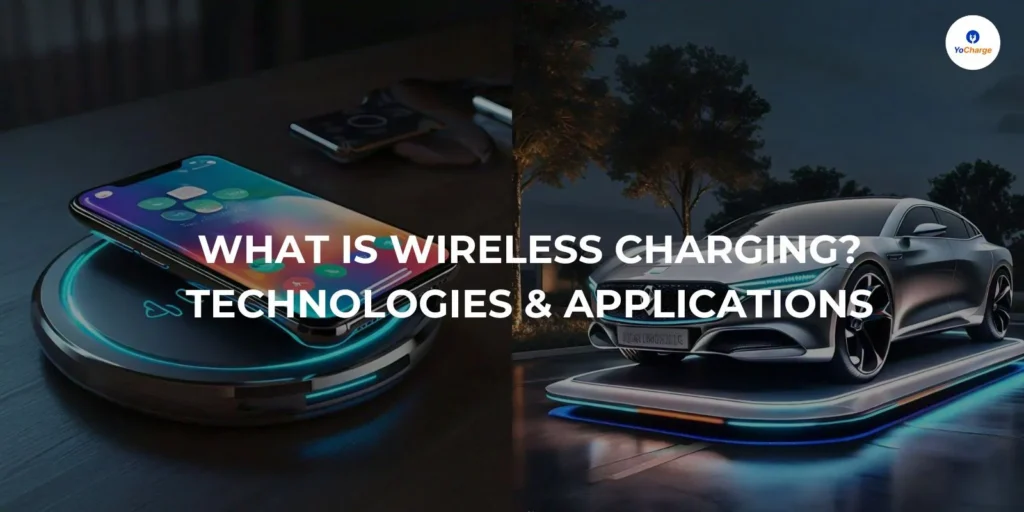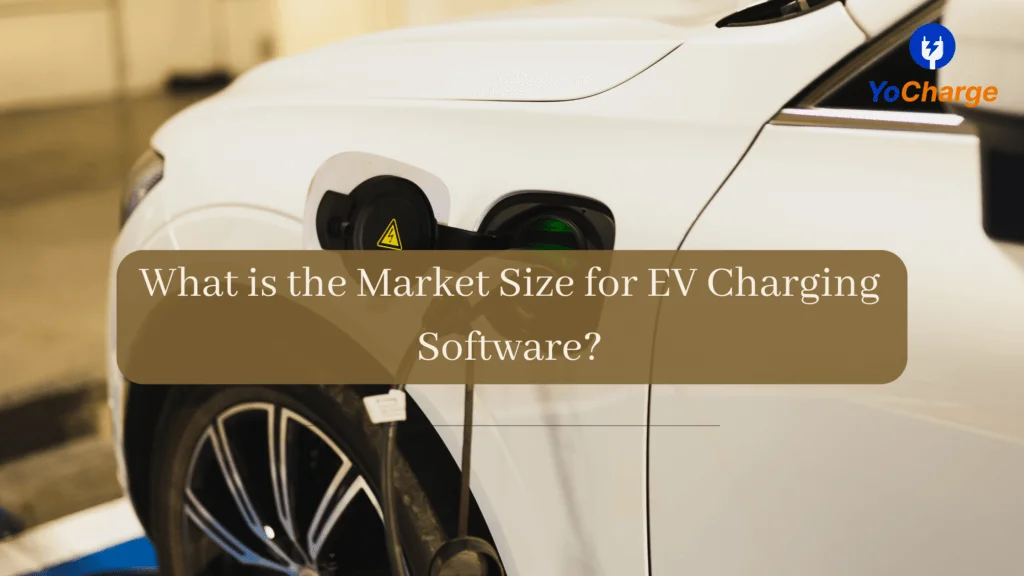
The EV charging software market is experiencing explosive growth, with multiple research firms projecting significant expansion of market size of EV Charging Software over the next decade. The EV charging station software market encompasses software platforms that manage electric vehicle charging infrastructure, including payment systems, energy optimization, fleet management, and network operations. In this article, we will explore the current market size and future growth potential of EV charging software.
Background
In recent years, electric vehicles (EVs) have become increasingly popular owing to their eco-friendly features and cost-effectiveness. However, one of the biggest challenges for EV owners is finding a reliable and accessible charging station. This is where EV charging software comes in – it provides drivers with real-time information on the location and availability of charging stations, as well as the ability to reserve and pay for charging sessions. With the rising number of EVs, the market of EV charging software is expanding rapidly.
Overview of the market size of EV Charging Software
Based on comprehensive analysis of multiple research sources, the global ev charging software market was USD 0.98 billion in 2021 and reached approximately $1.7 billion in 2024, with estimates ranging from $1.1 billion to $2.8 billion across different research firms.
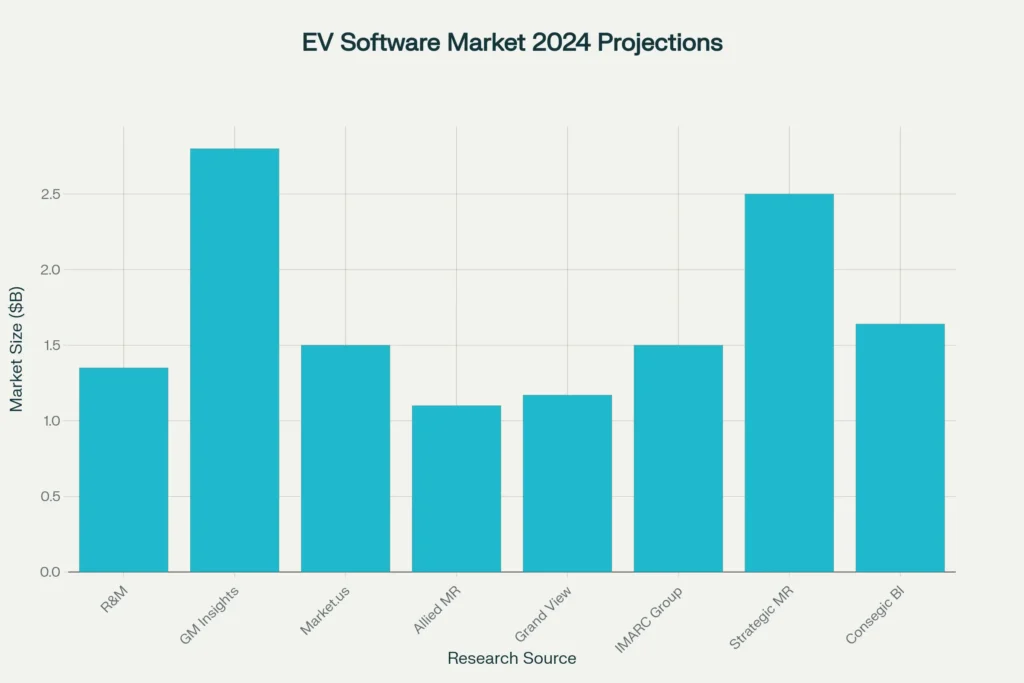
Further, the global market size for electric vehicle charging stations was USD 46.54 billion in 2022 and is projected to reach USD 417.35 billion by 2030, with a CAGR of 31.5% during 2022-2030. Within this market, the EV charging software segment is expected to experience significant growth and is expected to reach around 26 Billion USD by 2031, growing at a CAGR of 36.7% during the forecast period 2022-2031.
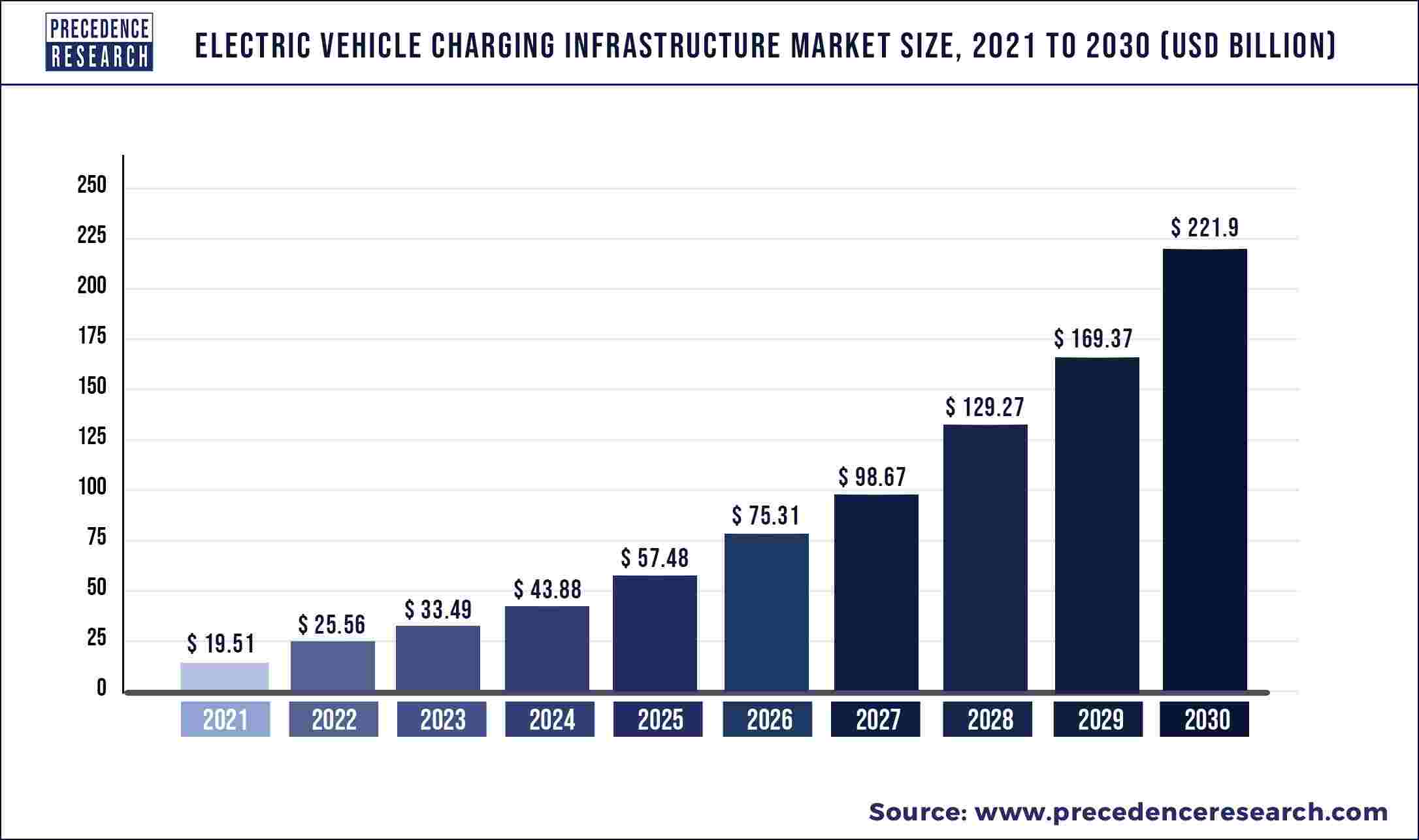
Factors Driving the Growth of the EV Charging Software Market
Rising EV Adoption:
Global electric vehicle sales increased from 4% of total sales in 2020 to 14% in 2022, with continued acceleration expected. The increasing adoption of EV’s is the primary driver of the growth of the EV charging software market size. As more people switch to EV’s, the demand for charging infrastructure and related software is also increasing. The International Energy Agency (IEA) reported that the number of electric cars on the road surpassed 10 million in 2020 and is projected to reach 145 million by 2030. This rapid growth in EV adoption is expected to generate substantial demand for EV charging infrastructure market and software.
Government Initiatives:
In addition to the increasing adoption of EV’s, government initiatives and regulations are also driving the growth of the EV charging software market. Many governments around the world are promoting clean energy, have set carbon emission reduction targets, offering incentives and subsidies to encourage the adoption of EV’s, which in turn is driving the demand for EV charging infrastructure market and software. For example, the US federal government has set a goal of installing 500,000 charging stations across the country by 2030 and has allocated funding to support the development of EV charging infrastructure market.
Infrastructure Expansion:
Significant growth in charging ports, with 2022 seeing more substantial expansion than the previous three years combined.
Technological Integration:
Incorporation of AI, IoT, and smart grid technologies for energy optimization and predictive maintenance are improving the reliability of EV ecosystem and building trust for the transition. The development of smart charging technology, enabling efficient grid use and cost reduction, will drive EV and EV charging software adoption. Additionally, the use of renewable energy sources like solar and wind power creates new opportunities for the market.
Market Segmentation of the EV Charging Software Market
The EV charging software market can be segmented based on the type of software, end-users, and geography.
Regional Market Distribution
The global EV charging software market shows distinct regional leadership patterns, with Asia-Pacific dominating the market landscape.
Asia-Pacific leads with 42.1% market share, generating approximately $0.67 billion in revenue in 2024. This dominance is attributed to:
- Strong government support for EV adoption in China, Japan, and South Korea
- Massive charging infrastructure investments, particularly in China with over 2.2 million charging stations
- Dense urban populations driving demand for convenient charging solutions.
North America holds 36.3% market share with $0.5 billion in revenue, driven by:
- Federal initiatives including tax credits and clean energy mandates
- Mature digital infrastructure supporting advanced software platforms
- Strong presence of major EV and charging companies
Type of Chargers
Level 2 chargers dominate the software market with 53.2% share in 2024, while Level 1 charging represents 40.4% of the market. Level 2’s dominance stems from:
- Optimal balance of charging speed and cost-effectiveness
- Widespread adoption in residential and workplace settings
- Ability to provide approximately 25 miles of range per hour compared to Level 1’s 4 miles.
By Application
Based on end-users, the market can be segmented into residential, commercial, and public charging. Residential charging refers to charging at home, while commercial charging refers to charging at workplaces or other private locations. Public charging refers to charging stations in public areas, such as shopping malls, parking lots, and other public spaces.
The commercial segment commands 68.4% of the market share, while public charging sites account for 55.7%. Commercial dominance is driven by:
- Growing fleet electrification initiatives
- Need for sophisticated energy management in large-scale installations
- Enhanced platform functionalities including analytics and payment integration
By Deployment
The market segmentation of EV charging software is based on the type of software, which includes mobile apps, web-based portals, and software platforms. Among these, mobile apps are the most commonly used software for EV charging. They enable users to access charging information and reserve charging sessions conveniently from their smartphones. On the other hand, businesses and organizations utilize web-based portals and software platforms to manage their EV charging infrastructure and offer charging services to their customers.

Cloud-based platforms represent 70.4% of the market, reflecting the industry trend toward: Scalable, remotely manageable charging networks Real-time monitoring and over-the-air updates Enhanced operational resilience and efficiency.
Major Market Players
Leading companies in the EV charging software space include:
YoCharge
YoCharge offers customizable, white-label EV charging software to empower businesses in scaling operations. Their flexible, energy-efficient platform caters to fleets and public charging operators globally.
- USP: Fully customizable and scalable solutions ideal for businesses expanding their networks.
- Key Offerings: White-Label Charging Software, Smart Energy Management, Fleet Optimization.
- Industries Served: Fleet Management, Public Charging, Commercial.
ChargePoint
ChargePoint boasts one of the largest EV charging networks globally, offering integrated hardware and software for public, residential, and commercial use. Their solutions prioritize seamless user experiences and global accessibility.
- USP: Extensive global network coverage paired with unmatched hardware durability.
- Key Offerings: Networked Charging Stations, Fleet Solutions, and Home Charging Systems.
- Industries Served: Residential, Commercial, Public Charging.
Ampeco
Ampeco provides smart software solutions to improve the performance of EV chargers and optimize networks. Their IoT-driven tools enhance user engagement and enable intelligent energy use.
- Industries Served: Utilities, Fleet, Residential.
- USP: Smart, IoT-enabled chargers with intuitive management software.
- Key Offerings: Charging Software Integration, Network Optimization, IoT-Enabled Chargers.
EVBox
EVBox is a global pioneer in providing reliable hardware and cloud-based charging solutions. Known for its commitment to sustainability, it serves a wide range of users, from homeowners to large enterprises.
- USP: Industry-leading fast-charging hardware paired with robust software tools.
- Key Offerings: Residential Chargers, Fast Chargers, and Charging Management Software.
- Industries Served: Retail, Hospitality, Residential.
Challenges
A significant challenge in the EV charging software market is the lack of standardization in charging protocols and software. Diverse connectors and protocols pose challenges for EV owners to locate compatible charging stations. Ongoing standardization efforts aim to simplify this process and enhance accessibility.
The market faces the challenge of the high cost of EV charging station and related software. As the market grows and achieves economies of scale, the cost of EV charging infrastructure and software is expected to decrease.
Opportunities:
The EV charging software market represents a critical component of the global transition to electric mobility, with robust growth projections supported by favorable government policies, technological advancement, and accelerating EV adoption worldwide. The various emerging opportunities include
- Integration with renewable energy sources
- Vehicle-to-Grid (V2G) technology implementation
- AI-powered optimization and predictive analytics
- Expansion into emerging markets with growing EV adoption
Conclusion
The future of the EV charging software market looks promising, with several factors driving its growth. Factors such as EV adoption, government initiatives, regulations, and technological advancements are expected to drive market growth. Furthermore, the use of renewable energy sources presents new opportunities for the increasing the market size of EV charging software.
In conclusion, the EV charging software market size is rapidly expanding, driven by the increasing adoption of EV’s, government initiatives and regulations, and technological advancements. The market is expected to experience growth in the coming years, presenting new opportunities in the renewable energy sector. Standardizing charging protocols and software, reducing costs, and embracing innovations are crucial for the market to reach its full potential. The future of the EV charging software market looks promising, with emerging solutions and innovations on the horizon.
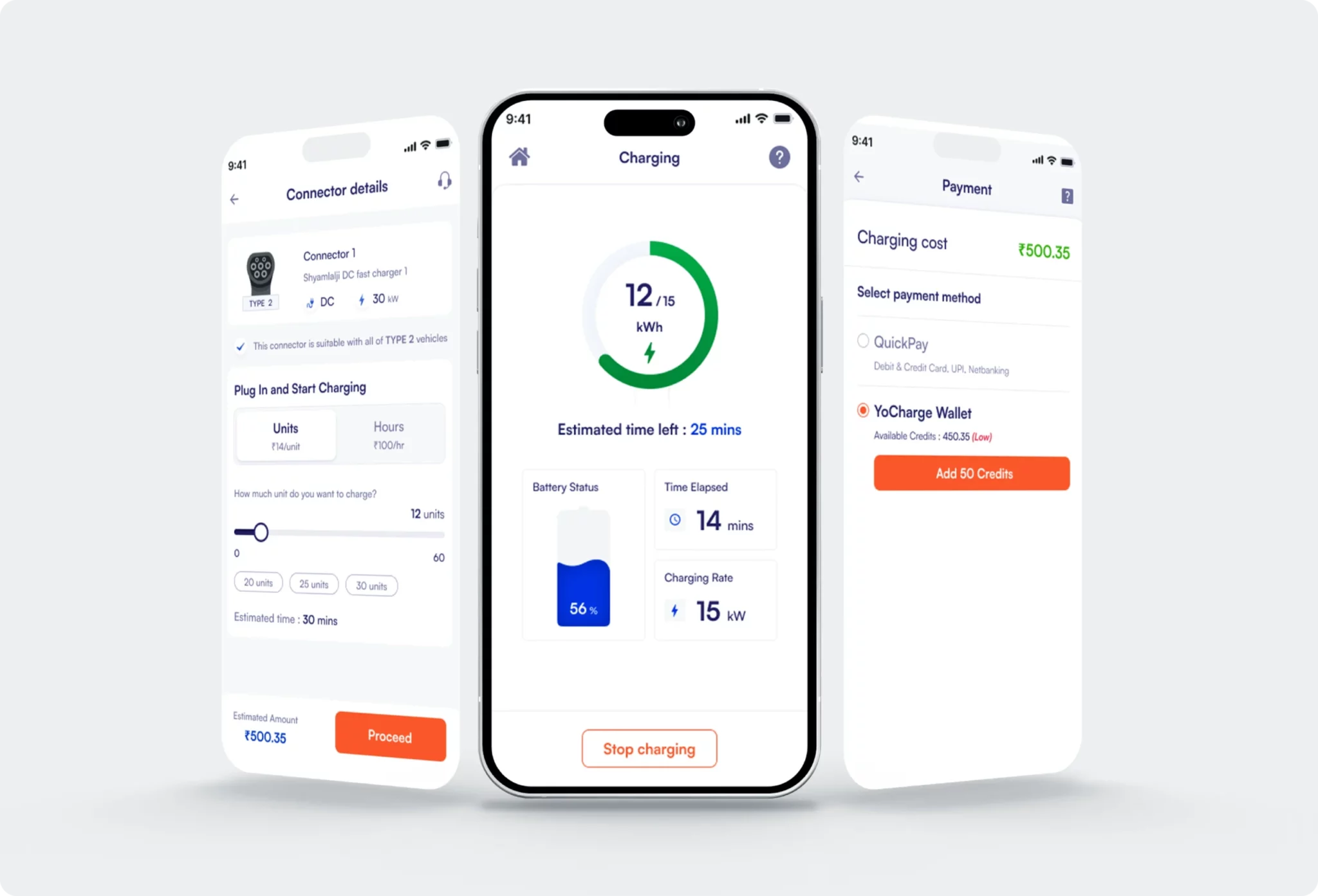
Introducing YoCharge
Yocharge is the EV Charging Management Software Company. As a trusted partner of Charge Point Operators our goal is to simplify the launching, operation & growth of EV Charging Services Business. With help YoCharge you can launch your own branded EV Charging business in 7 days with custom mobile Applications.


